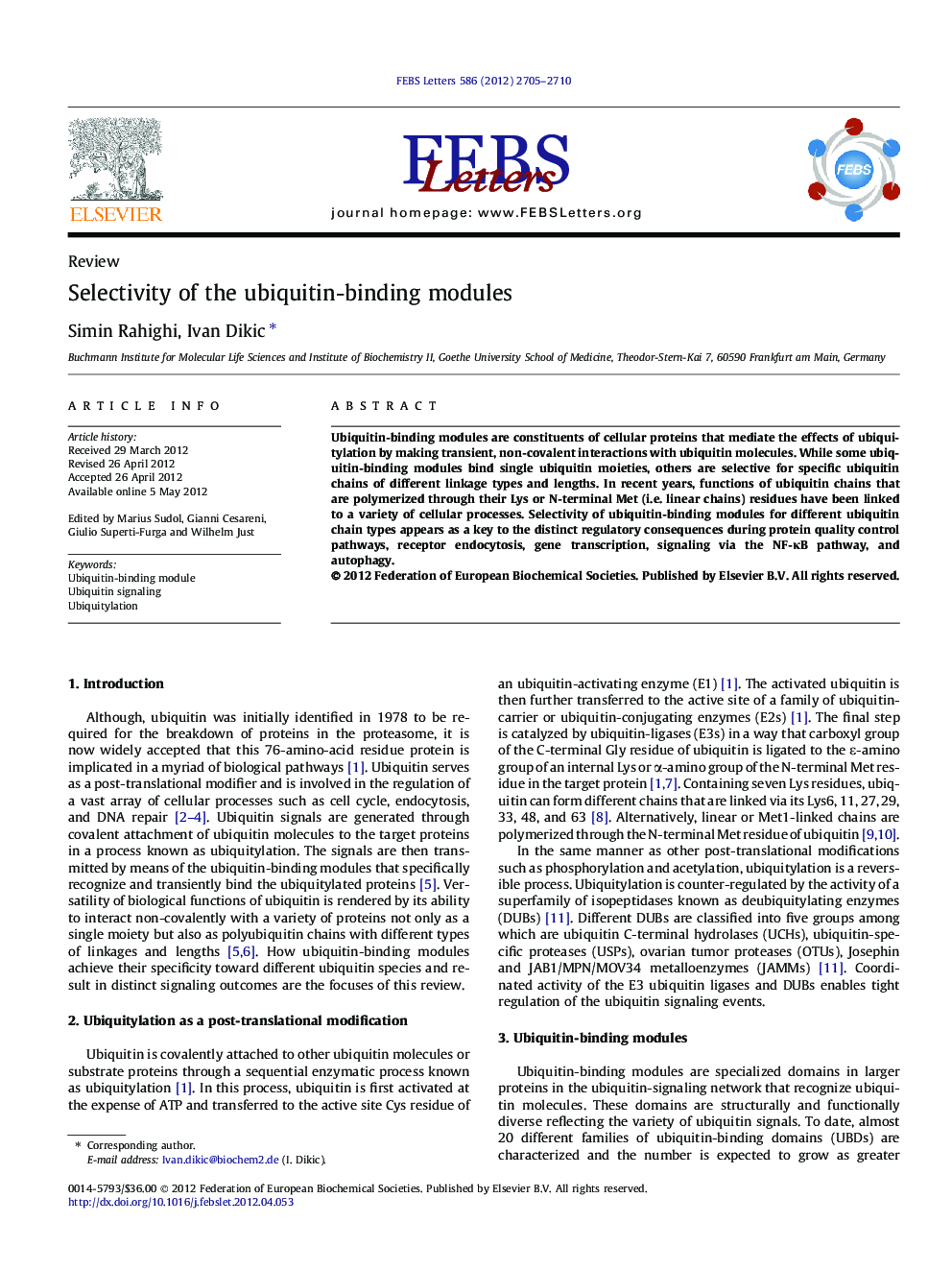| Article ID | Journal | Published Year | Pages | File Type |
|---|---|---|---|---|
| 10871651 | FEBS Letters | 2012 | 6 Pages |
Abstract
Ubiquitin-binding modules are constituents of cellular proteins that mediate the effects of ubiquitylation by making transient, non-covalent interactions with ubiquitin molecules. While some ubiquitin-binding modules bind single ubiquitin moieties, others are selective for specific ubiquitin chains of different linkage types and lengths. In recent years, functions of ubiquitin chains that are polymerized through their Lys or N-terminal Met (i.e. linear chains) residues have been linked to a variety of cellular processes. Selectivity of ubiquitin-binding modules for different ubiquitin chain types appears as a key to the distinct regulatory consequences during protein quality control pathways, receptor endocytosis, gene transcription, signaling via the NF-κB pathway, and autophagy.
Keywords
Related Topics
Life Sciences
Agricultural and Biological Sciences
Plant Science
Authors
Simin Rahighi, Ivan Dikic,
